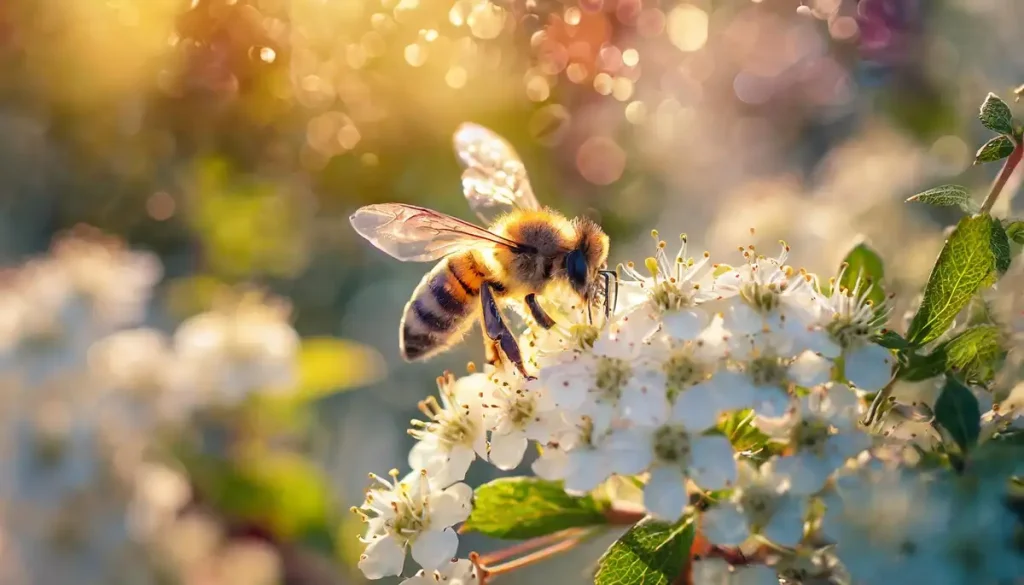Table of Contents
For the most part, the majority of people understand the importance of bees instinctively. Honeybees are part of nature that we innately know which, if lost, would leave an ecological hole unable to be filled by any other species. But many people want to know concrete reasons above and beyond what instinct tells them. That’s good. The more that people want to know about beekeeping, the more beekeepers like myself are able to educate them about the importance of these valuable insects.
The best way to explain why beekeeping is so important is to offer a few facts about bees and beekeeping:
- Bees Make Honey
- Beekeeping is Comparably Inexpensive
- Beekeeping is Relaxing
- Beekeeping is Rewarding
- Beekeeping Offers a Connection to Nature
- Bees Are Great for Your Garden
- Beekeeping is Highly Educational
- Bees Are Pollinators
- Farmers Want Your Bees
- Agriculture Depends on It
- Bee Populations Are Declining
- Native Bees No Longer Thriving
- Beekeeping Knowledge is Disappearing
- Bees Are Part of The Food Chain
- Bees Are Counting on Us
- You Love Honey and Beeswax
Perhaps these facts will appeal to you. Perhaps they will encourage you to take up this wonderful hobby.
Nevertheless, this article discusses why I think beekeeping is important – not just to the individual, but to humanity in general. We must always remember that bees are an integral part of nature; a part that the world cannot live without.
Much of what I have written in this article is directly related to our current understanding of nature. Science has certainly come a long way over the last hundred years or so. As such, we know a lot more about honeybees today than we ever have before. And what we know tells us that we have a responsibility to make sure bees continue to thrive all over the world.
So, while you read this explanation of why beekeeping is good for all involved, I invite you to consider taking up the practice yourself. Beekeeping makes for a wonderful hobby that is, by its very nature, relaxing, enjoyable, and highly educational. It represents an opportunity for you to do something to connect with nature. It is a wonderful substitute for technology, sports, and entertainment.
Indeed, global statistics show that the vast majority of beekeepers are hobbyists who do what they do just because they love doing it. Commercial operations do not contribute as much to the beekeeping community as you might think, primarily because it is hard to make good money doing it. That’s not to say it’s impossible but making a long-term beekeeping business viable takes an awful lot of work as well as a considerable amount of investment.
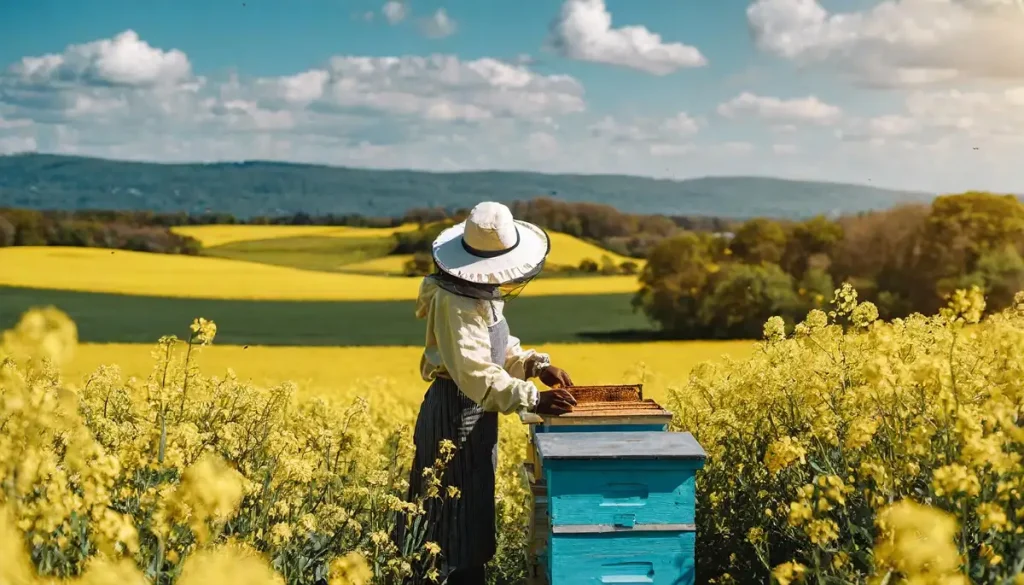
Having said all that, beekeeping is quite popular as a hobby. In the U.S. alone, there is an estimated 115,000 to 125,000 active beekeepers. Data from the European Union, compiled in 2017, suggests there are some 600,000 beekeepers across all the countries in the bloc.
It is hard to say how many beekeepers there are in South America, Africa, and Asia because hard and fast records are difficult to find. But it is reasonable to assume that adding up all the numbers would result in well over a million beekeepers across the globe.
1: Bees Make Honey
Believe it or not, the number one reason that gets most hobbyists into beekeeping is the fact that bees make honey. This first fact sounds like something Captain Obvious would say. But this does not negate the fact that people pursue beekeeping because they want what comes out of that hive.
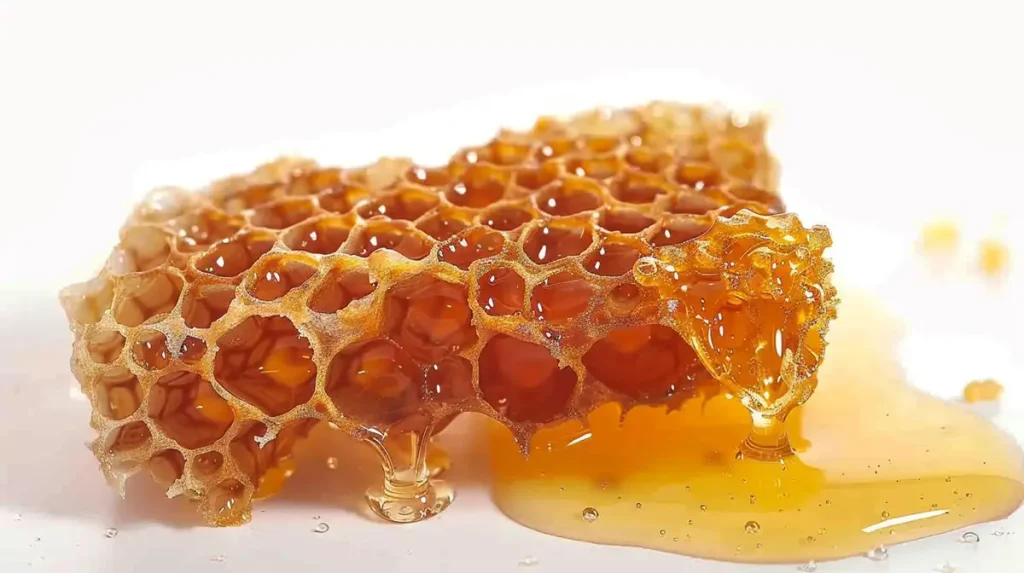
The fact that bees make honey is good. So is the honey for that matter. There is nothing quite like fresh honey taken from your own hive and poured over a batch of warm pancakes. Honey is great on toast, ice cream, and ham fresh out of the oven. It is great for adding extra flavor to your tea and coffee, too. I could go on and on here, but you get the point.
2: Beekeeping is Comparably Inexpensive
In all fairness, it does cost quite a bit to actually get started with beekeeping. You have to buy either established hives or bee kits and the materials to build your hives. You would also need to invest in a bee suit and a couple of tools for cleaning and harvesting. But that’s about it. Once you make that initial outlay, you will spend very little to keep your hives going.
- Carter, Anthony (Author)
- English (Publication Language)
- 194 Pages - 02/28/2024 (Publication Date) - Independently published (Publisher)
People often gasp when told how much is spent to set up a new hive. But it’s really not that much compared to similar activities. You could spend between $300 and $1000 for every new hive you install. That’s not bad when you consider how much a cattle rancher spends on a new cow. Compared to the costs of husbandry and farming crops, beekeeping is pretty cheap.
Beekeeping is also pretty affordable when you compare it to non-agrarian hobbies. Maybe you are a sports fan who buys season tickets for your favorite teams. What you spend on a year’s worth of tickets would take a hobbyist beekeeper several years to spend on his or her pastime.
A hobby like golf, for example, includes ongoing expenses. Your initial outlay may be less if you don’t spend a ton on your clubs and balls, but every round you play will cost you a little bit more. You could easily spend more on golf in a single season than a new beekeeper would spend setting up hives. The following season will see you spending even more. It all adds up over time.
As far as hobbies go then, beekeeping is comparatively inexpensive over the long run. There are a lot more hobbies that cost a lot more than beekeeping, that’s for sure. So for someone looking for an inexpensive hobby that they can do for years on end, beekeeping is a very attractive option.
3: Beekeeping is Relaxing
People tend to take up hobbies they find both enjoyable and relaxing. That’s just part of human nature. Some people play golf because they enjoy the peace and serenity of being out on the course with bright sunshine, warm breezes, and nothing to do but hit a ball around.
Others enjoy hunting because they find being out in the wilderness quite relaxing. More than one hunter has explained that a bad day of hunting – which is to say nothing was bagged – is still better than a good day spent working.
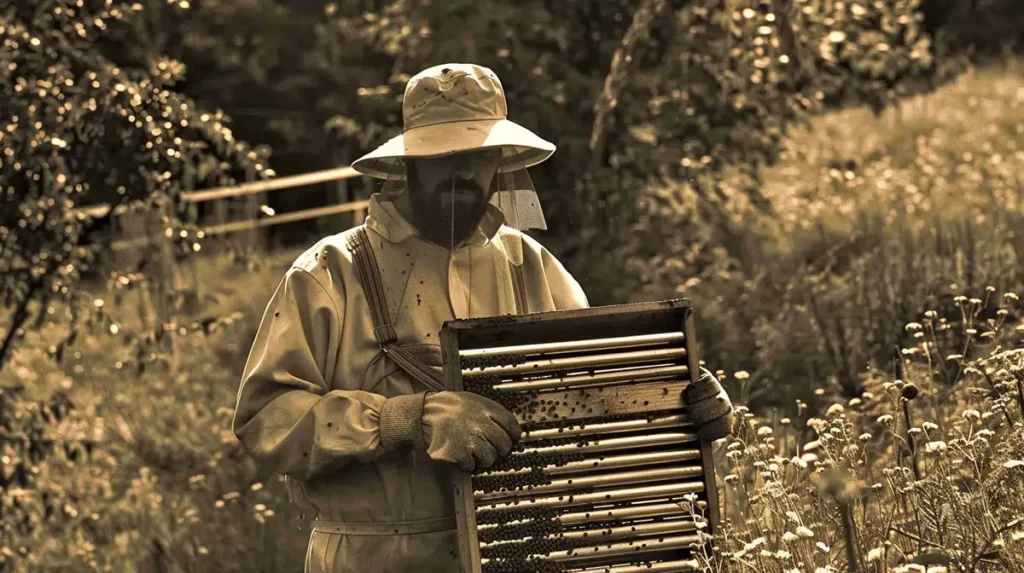
Beekeeping is much the same thing. Scour the internet for beekeeper testimonials and you’ll find a common thread: they find what they do very relaxing. It is really enjoyable to put on the bee suit and head off to clean the hives. Any beekeeper will tell you that there is something unique about going out to tend to hives the first thing in the morning or just as the sun is going down in the evening. The gentle buzz of the bees creates a soothing sound that helps a beekeeper completely unwind by calming the nerves and soothing the soul.
In short, keeping bees allows you a time of respite at least once per week. If you are anything like me then you go out and tend to the bees several times a week just because you enjoy it so much.
4: Beekeeping is Rewarding
Ask most beekeepers why they do what they do, and they will explain to you how rewarding the hobby is. The rewards are evident on multiple fronts, beginning with the opportunity to help restore decimated bee populations.
More than a decade ago, worldwide populations of European honeybees began suffering catastrophic losses as a result of something known as colony collapse disorder (CCD). The disorder occurs when a majority of a colony’s worker bees abandon the queen, leaving a hive full of immature larvae and no food to sustain the larvae to maturity.
No one knows for certain what causes CCD. Furthermore, it is something that has been observed on numerous occasions since the 1800s. But the round of CCD that began making its way through worldwide bee populations at the turn of the twenty-first century has been especially severe. Some estimates suggest that the world lost upwards of 50% of its European honeybees between 2006 and 2009.
Bee populations are slowly growing again thanks to the efforts of the hundreds of thousands of beekeepers scattered around the world. Knowing that you are part of the ongoing success story is extremely rewarding. It is reason enough to motivate many beekeepers to continue doing what they do.
5: Beekeeping Offers a Connection to Nature
Industrialization and the move to cities resulted in a profound change in many countries around the world. In Western nations, the change has been so profound that most people have completely lost touch with nature. Beekeeping changes that. Beekeeping reconnects the keeper with nature in a way that changes how that individual views the world around him or her.
Understand that being a successful beekeeper requires understanding how bees work. It requires understanding their environment, their life cycle, their ecosystem, and how all of that relates to the world around them. There is no beekeeper out there who has not learned a ton about the inner workings of nature as a result of keeping bees, and I include myself in that.
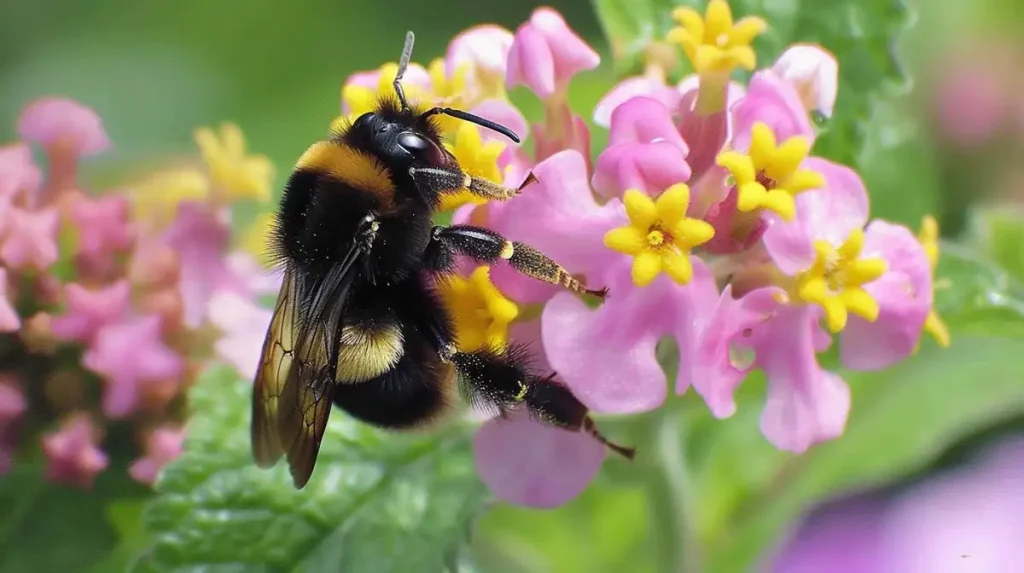
It is important that humanity reconnect with nature if we expect to preserve the planet we have been given. So yes, beekeeping is about more than sustaining bee populations. It is also about teaching people a greater appreciation for nature along with a better understanding of how to preserve it.
It is about more than just keeping hives and collecting honey, though. Keeping bees requires the beekeeper to actually interact with a species of insect that countless other people find unappealing. Where many folk think having bees around is a nuisance, the beekeeper welcomes them with open arms. Beekeepers connect with their bees in the same way a dog owner connects with his or her dog(s).
This might sound strange to those who have never kept bees before. But it is completely natural. Human beings are as much a part of nature as any other creature. We all connect in some way. So being able to connect to nature through beekeeping is completely rational.
6: Bees Are Great for Your Garden
Looking out of your back window probably reveals a bunch of plants and trees. Keeping bees is good for those plants and trees. Remember that bees are pollinators. Having a couple of hives in the backyard will do wonders for all the natural foliage you love so much.
If you are into planting a garden or surrounding the perimeter of your home with flowers, beekeeping is good for that too. Your bees will do what they do naturally to the benefit of every plant or flower you put in place. It is all part of the natural circle of life built into nature.
By the way, most beekeepers are not surprised that their yards are the envy of the neighborhood. People walk by and exclaim how beautiful their flowers are and how lush and green their bushes look.
7: Beekeeping is Highly Educational
Beekeeping is a highly educational experience as well. The learning never ends. Beekeeping education begins with investigating the difference between starter hives and bee kits. It carries on with learning all about queens, workers, and drones. Then there is the bee’s lifecycle, and how that life cycle affects the health and productivity of a hive.
Everything you learn about beekeeping in order to get your operation up and running is just the start. Many novice beekeepers think they are fairly knowledgeable about beekeeping after their first year. Well, let me tell you now that this is a wrong assumption. During the second year, you might learn just how devastating disease can be to colonies. You would then have to learn how to spot the signs of disease and what to do if you ever notice them. Beekeepers must learn everything from bee biology to bee psychology in order to prevent colony collapse. To say there is a lot of education that goes into beekeeping is to understate the matter.
I could go on, but you get the point. The truth is that bees are simultaneously fascinating and fragile. Successful beekeeping involves an ongoing learning process that never ends. To most, that’s good. They love learning, so beekeeping is a perfect hobby for them.
More than one beekeeper hobbyist started out as a child learning about bees for a school project. Those young students were so fascinated that taking up beekeeping in adulthood seemed natural. Many of those same beekeepers now keep doing what they do because they are driven to continue learning.
8: Bees Are Pollinators
Every creature in nature has at least one primary function that contributes to a balanced ecosystem. In the case of honeybees, they contribute mainly as pollinators. What is a pollinator? It is a creature that carries pollen from one plant to the next. Pollinators are critical to the existence of plant life.
To understand how this works, consider almond trees. Before almond trees can produce nuts, their flowers must be pollinated within a two-week span at the start of the growing season. Every flower that is properly pollinated will go on to produce a nut.
Nature has devised numerous ways of accomplishing pollination. But honeybees are by far the best pollinators. They go out into an almond orchard in search of food they can bring back to the hive. They fly from flower to flower, grabbing pollen and packing it into highly compressed balls. Every time they land on a new flower, some of what they have accumulated falls into the flower’s reproductive tract.
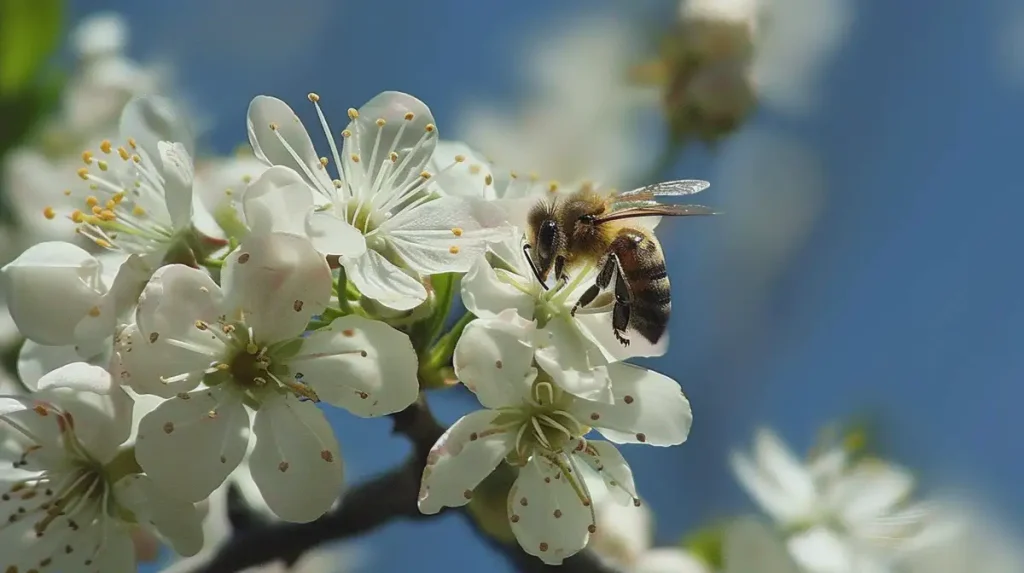
That simple act is that which allows the almond flower to germinate and grow. If no pollen reaches the reproductive tract of a given flower, it does not germinate. If it doesn’t germinate, it doesn’t produce a nut.
So just how important are bees to pollination? Conservative estimates suggest that honeybees are responsible for pollinating more than 30% of the crops human beings grow for our own consumption. Just think about that for one second.
There are other pollinators including bats, butterflies, beetles, and so forth. Even the wind manages to carry pollen back and forth to some degree. But when you combine all of those other pollinators together, they only account for two-thirds of what nature requires. The mighty honeybee accounts for the other third all by itself. That makes bees the heavy hitters in the pollination world. It is no exaggeration to say that bees are critical to feeding humanity.
9: Farmers Want Your Bees
Your average beekeeping hobbyist isn’t in it for the money. Having said that, being able to earn a little extra money on the side is one way to offset the expenses of beekeeping. Some of the extra money you earn could come from farmers who want to rent your beehives for a few weeks every year.
Yes, farmers want beehives for pollination purposes. They are willing to pay good money to rent productive hives if it means increasing crop yields. Trust me on this. There are professional beekeepers who make a good living doing nothing but renting hives to farmers. These are the migratory beekeepers who travel all over the country following pollination cycles.
10: Agriculture Depends on It
Moving beyond small-scale hive rental, the fact of the matter is that agriculture depends on bees. As mentioned a couple of paragraphs above, as much as one-third of all the agricultural products humans consume as food only grow because crops are pollinated by bees. Think about that for a minute. And when I say agriculture, I am including both raising crops and animal husbandry. The valuable service bees provide to local ecosystems make it possible for farms and cattle operations to succeed. Without the bees, farms would suffer.
According to the Ulster Beekeepers Association in Northern Ireland, no fewer than 39 commercial crops in that part of the world are reliant on bee pollination. In addition, bees pollinate clover and alfalfa. Those two crops are used to feed cattle and other farm animals. A lack of clover and alfalfa would make it more difficult to raise both beef and dairy cattle.
There are other pollinators out there. However, none are as prolific as the honeybee. The large-scale agricultural operations that now feed the majority of the world would not be possible without an army of bees doing what they do. If we want to continue feeding the world, we have to maintain healthy bee populations.
Off the farm, bees are still equally important. Those fields of wildflowers you’ve seen on postcards and in movies only exist because bees are there pollinating. Everything from the fertile valleys of the Swiss Alps to the lush, tropical forests of South America exist because of the hard work bees do. Bees are a critical part of nature that we cannot do without.
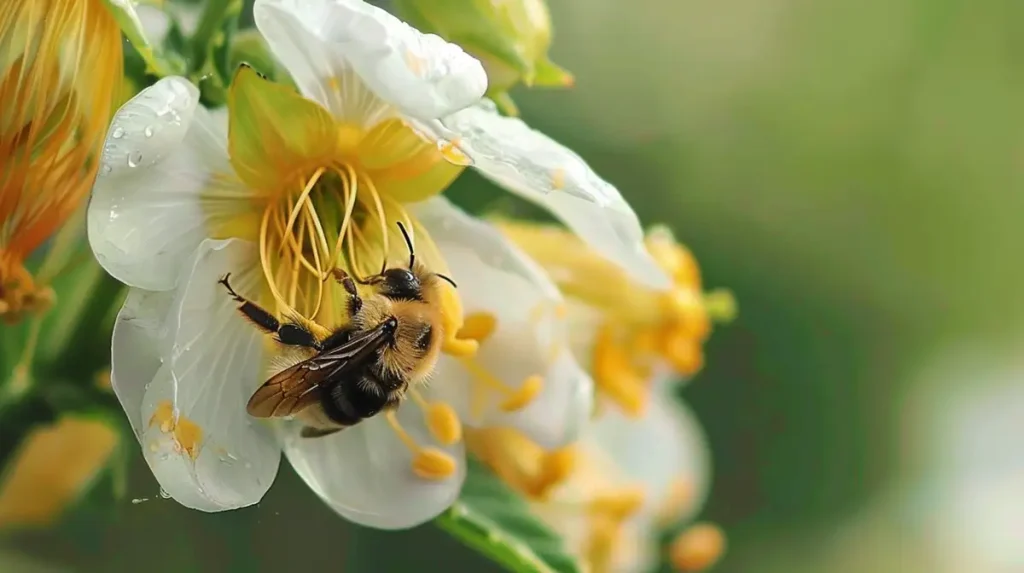
I previously mentioned the almond tree. Central California almond orchards produce the majority of almonds sold around the world. Their trees contain more than 1 trillion flowers responsible for producing billions of nuts annually. As mentioned, the pollination window for almond flowers is a mere two weeks. Without an adequate supply of bees in those orchards, flowers would never produce enough nuts to meet demand. You can bet those almond farmers are very fond of bees and beekeepers. Without them, the farmers’ livelihood would be adversely affected.
Beyond commercial agriculture, bees also pollinate the plants, flowers, and trees occurring in nature. Let’s say you were a beekeeper with property bordering the edge of a forest. What you do is helping to keep that forest alive. That’s kind of cool, isn’t it?
11: Bee Populations Are Declining
Most beekeepers take pride in beekeeping knowing that what they do is helping to at least stabilize bee populations, if not grow them. Unfortunately, a variety of influences have combined over the last two decades to seriously decimate bee populations around the world. We cannot afford to allow those populations to fall any further.
If you are involved in beekeeping as a hobby, you might make a point of keeping up with beekeeping news. One thing you may have noticed in the last few years is an alarming increase in the number of stories detailing how bee populations, in general, are declining all over the world.
For example, a March 2018 article from Bees for Business detailed a study done among British beekeepers a couple of years beforehand. According to that study, estimates suggest there were some 1 million beehives in the UK in 1900. There were just 270,000 in 2015. That is a loss of nearly 75%.
The article does not say if the numbers apply only to beehives in nature or if they also include hives kept by beekeepers. Regardless though, a loss of 75% is devastating. If nothing else, beekeeping is important if we hope to rebuild bee populations to what they were at the start of the 20th century.
So what has caused the decline? Scientists have been asking that for some time now. Unfortunately, no single cause has been found. I say ‘unfortunately’ because finding a single cause would make for easy correction. But the fact is there are multiple factors contributing to bee population decline.
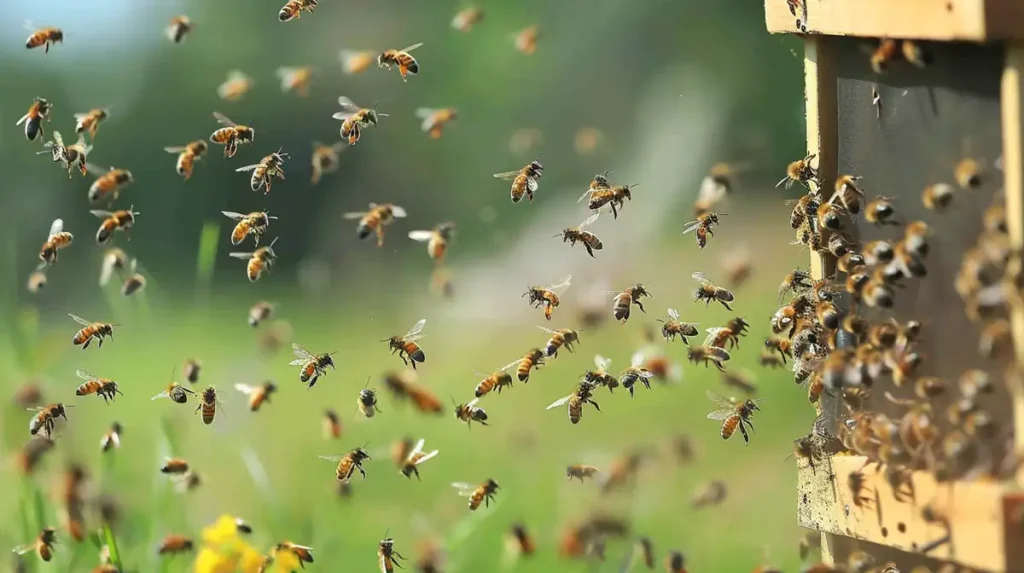
The first cause is something I have previously mentioned: a lack of biodiversity in some areas. A second cause is disease. Just like humans are subject to more diseases today than we were in times past, so is the rest of nature. Disease is part of the evolution of our planet. Unfortunately for bees, they do not have scientists and doctors in their midst. It is up to beekeepers to protect colonies from those diseases that could kill them.
Hobbyist beekeeping is good because it is part of a worldwide effort to restore bee populations. Your operation may not be the biggest in the world, but it doesn’t have to be. Bees are like pennies. A bunch of small operations like yours add up to a lot of healthy bees taking their place in nature.
Bee Decline Due to Colony Collapse Disorder
Getting into this a little further, about 10-15 years ago, beekeepers in the United States noticed something alarming: growing numbers of existing hives were turning up empty. Not only were the bees missing, the hives were not littered with bee carcasses. No one knew what was going on at the time. Unfortunately, the problem was not limited to the U.S.
As soon as colony collapse became big news in the States, beekeepers in other nations started to speak out as well. It quickly became apparent there was something going on across the globe. Science eventually identified the problem as colony collapse disorder (I touched on this in one of the above paragraphs).
No one knows for sure how significantly the world’s bee populations have been affected since 2007. The U.S. Environmental Protection Agency (EPA) estimated that as much as 50% of domestic bees in the U.S. had disappeared when the problem was first noticed. Those estimates were pretty similar in other parts of the world. In the UK though, estimates were much higher. Upwards of 80% of honeybees in the UK were victimized by CCD.
So what is this disorder? It is a disorder typified by not having enough worker bees to keep the hive going. Worker bees are the ones that keep both queens and larvae fed, thus they are also the bees responsible for keeping hives alive. Not enough workers mean not enough food. Insufficient food causes colonies to die out.
Causes of Colony Collapse Disorder
There is no single factor that causes colony collapse disorder. In fact, the EPA lists seven contributing factors:
- Invasive mites
- Emerging diseases
- Pesticide poisoning
- Stress due to poor management
- Stress that causes immunological problems
- Habitat changes
- Inadequate food supplies.
The point of all of this is to say that the entire world has suffered as a result of bee population collapse. Moreover, bee populations are continuing to struggle. An estimated 20% of colonies were lost in the U.S. over the 2015-2016 winter. Canadians lost more than 16% of their colonies while central Europe suffered losses of just under 12%.
While science works on ways to stop CCD, it is up to beekeepers to maintain healthy populations. If more people were willing to take up the beekeeping hobby, it is possible that we could increase bee populations considerably.
12: Native Bees No Longer Thriving
The honeybees that do most of the pollination work around the world are actually European bees. For some reason, European bees are much better at adapting to a variety of environments than many other bee species are. This is good because, as discussed above, native bee populations in many parts of the world are no longer thriving.
No one knows for sure why, but an article I read a few years ago suggested that one of the issues native bees are running into is the prevalence of human agriculture. Prior to the large-scale agriculture we now practice, large tracts of land in many parts of the world were incredibly biodiverse. Native bee populations thrived in those diverse environments.
Because modern farming techniques frown on biodiversity, farmland offers a much smaller variety of crops. This is a double-edged sword for native bee populations. Not only is there less biodiversity available on active farmlands but clearing wild areas to create new farmlands further reduces the biodiversity of the region.
It is thought that the reduced biodiversity in many parts of the world is harming native bee populations by reducing the kind of nourishment those bees need. If this is true, it is unfortunate. But there are projects ongoing in many parts of the world looking for ways to restore native bee populations. In the meantime, we can at least take comfort in knowing that European bees seem to do well in almost any environment.
13: Beekeeping Knowledge is Disappearing
Another contributing factor in the decline of bee populations is the decline of beekeeping as an occupation. Look, beekeeping has been practised for thousands of years. It is no different than growing crops or raising cattle. The problem we have in beekeeping is that it is not something that can be done on an industrial scale.
Humanity has been highly creative in turning single-farm agriculture into a large-scale, industrial enterprise. Some of the biggest farms in the world cover thousands of acres and produce millions of tons of food in a single season. We have managed to do the same thing with beef and dairy cattle. Industrial operations manage tens of thousands of animals with the help of automation and computerized equipment. You cannot do that with bees.
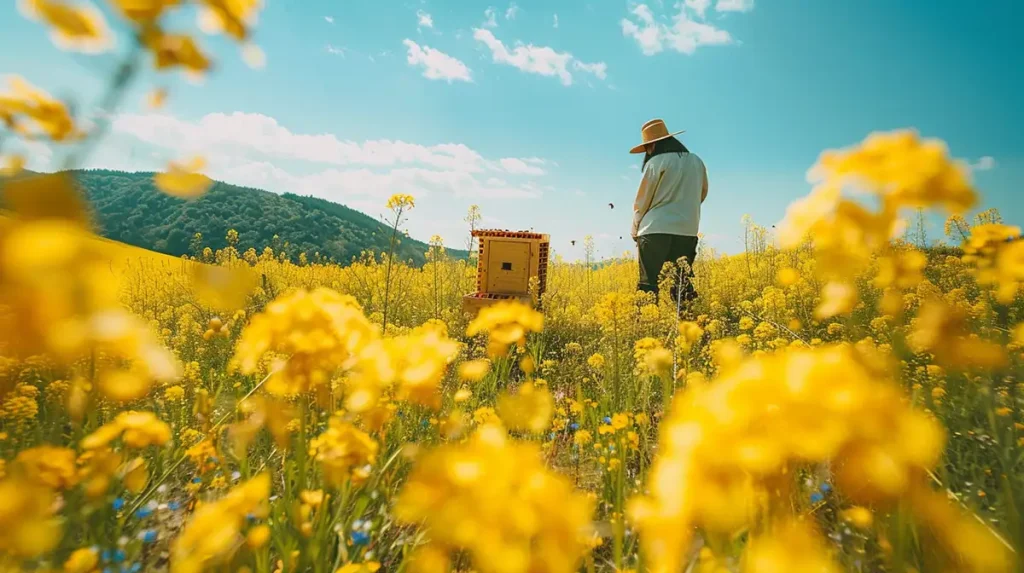
At the end of the day, beekeeping is extremely labor-intensive. And because bee populations are so delicate, it is exceedingly difficult for beekeepers to maintain extremely large operations on the same scale as an industrial farm. It just doesn’t work. Most beekeeping operations are small enough to manage with just a handful of people. And forget about automation. There really is nothing about beekeeping that can be turned over to machines.
The Average Age of a Beekeeper
According to a University of Delaware survey taken at the start of the bee population collapse in the States, the average age of a beekeeper was 57. The median age was 56 while the mode age was 47. Stop and think about that for just a minute. If the average beekeeper today is 57 years old, then with all due respect, that means he or she is already on the downhill slope of life. Even if a 57-year-old beekeeper lives into his/her 80s, what is the likelihood he/she will continue keeping bees that long? Statistics suggest the chances are not good.
The reality is that experienced beekeepers are retiring and passing away. Every beekeeper death results in a measure of beekeeping knowledge disappearing from the worldwide consciousness. And without enough young beekeepers coming in to take their place, there is no one to pass that knowledge on to.
This is a scary proposition. There are a lot of things commonly done by past generations that we know nothing about today. Take something as simple as churning butter. That was a routine household chore before the Industrial Revolution took people off their farms and placed them in factories. How many people know how to do it today?
It is no big deal that butter churning knowledge has been lost because we have ways of making butter on an industrial scale. The same is not true for bees. Beekeeping is a highly specialized practice that requires equal parts skill, knowledge, and art. It is not something that can be industrialized so easily.
If we continue to allow decades of beekeeping experience to die along with those beekeepers who possess it, we could arrive at a day when not enough people know how to keep bees. Any serious incidents of colony collapse disorder under such circumstances would be devastating.
It is going to be very difficult for us to increase the number of beehives – both managed and in the wild – if we cannot manage to encourage more young people to start keeping bees. Even keeping bees as a hobby is better than not keeping them at all. But we also need more full-time beekeepers as well.
14: Bees Are Part of the Food Chain
Beekeeping is important to the global food chain as well. There are two things to consider here, beginning with the fact that honeybees do have natural predators. Because of their small size and their tendency to live in colonies, bees are prey to a number of other species. Small birds, mammals, reptiles, and even other insects feed on them.
Collapsing bee colonies are harmful to these other predators because of the associated reduction in their food supply. If there are not enough bees to supply the demand built into nature, those predators have to seek other sources of food. This causes a disruption in the natural food chain that goes right down the line.
The other thing to consider is how bees contribute to human food supplies. Bees are prolific pollinators. I mentioned above that bees are responsible for pollinating up to 30% of the agricultural products that we humans consume as food. A collapse in bee populations makes it harder for farmers to grow what we all need to survive.
In addition, think about all the grain we grow to feed cattle. That grain also depends on pollination. And let us not forget bees pollinating in the wild. Every herbivore that finds its dinner in the field or forest is relying on pollination to keep the menu full. Collapsing bee populations affect their food supplies too.
15: Bees Are Counting on Us
Next is the fact that the world’s bees are counting on us. As the most advanced species on the planet, only humans have the ability to apply science to the current crisis. Declining bee populations are not going to be scientifically addressed by monkeys, dolphins, or any other species. So if we don’t help, there will be no help forthcoming.
Human beings are unique in that we can exercise free thought outside of instinct. Animals cannot. Animals put survival above all else. That is why a grizzly bear has no trouble destroying a beehive in order to get to the honey. A bear does not care that its behavior is also killing bees.
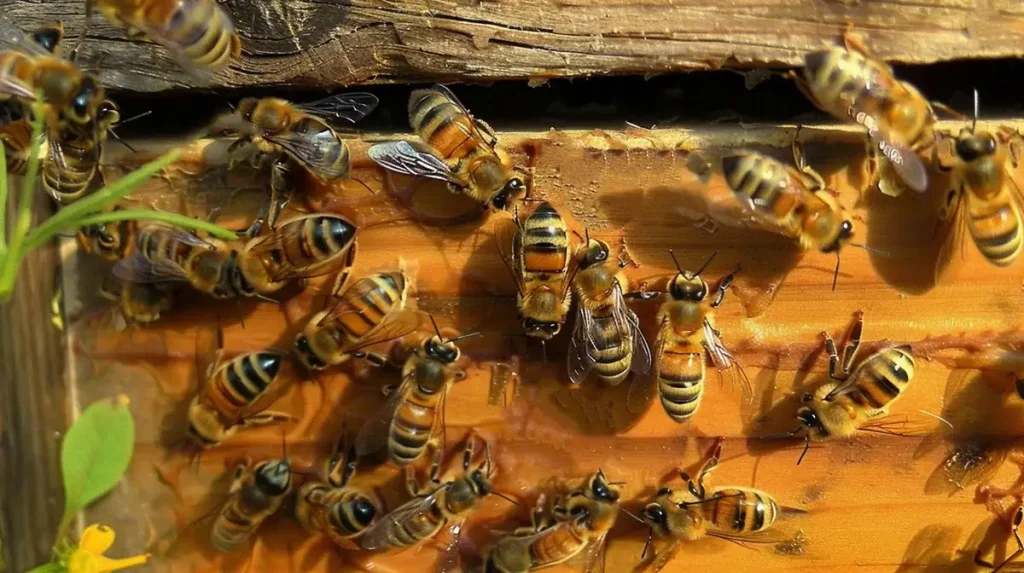
Humans have the capacity to look beyond our own survival to find ways to help other species survive with us. This capacity is one of the many things that makes us so different from everything else in the natural world. So again, that leads us to the inevitable question of who else can help save the bees if not for humanity?
We have already seen abject devastation of bee populations over the last decade or so. Populations are starting to come back slowly, but with winter losses still exceeding double digits, there is no guarantee we will ever be able to restore them to previous numbers. But we have to try though.
16: You Love Honey and Beeswax
Last but by no means least is the reality that bees produce both honey and beeswax. Some people keep bees purely because they love honey. It is no different than people keeping chickens for the sole purpose of being able to provide their own eggs.
Keeping a couple of hives is enough to supply all the honey a family needs. There isn’t much money in it, but that doesn’t matter. If you are the kind of person who would put honey on just about anything, having a natural honey producing machine out back – by way of a couple of beehives – is not a bad thing.
You Can Be Part of the Solution
Hopefully, you’ve learned a thing or two about why beekeeping is so important from this article. If what you have read has piqued your interest in beekeeping, I encourage you to learn more about this age-old practice. You can be part of the solution by taking up beekeeping yourself – even if it is only on a small scale.
Humanity will never save the bees just with a few dozen professionals running big operations. No, it is going to be the collective efforts of small operations and hobbyists that make a real difference. You can be one of them.
Make no mistake, beekeeping is important. It is important to the health and safety of bees, nature’s ongoing cycle of life, and even our ability to grow the food we need to support humanity. Bees are so important that if we do not find a way to stop population collapse, the world is going to suffer big time at some point in the future.
Without them, agriculture would not be possible. Our majestic forests and beautiful valleys would not flourish. We would live in a far different world absent the many benefits bees bring to the ecological table.
So, what about you? Are you entertaining the possibility of taking up the beekeeping hobby? If so, rest assured there is plenty of help out there. Between online resources (such as this website), printed materials, videos, and beekeeping clubs, you can get the support and information you need to make a good go of it. Give it a try and you will quickly discover why beekeeping is so popular with so many hobbyists.
Looking to up your beekeeping game? Check out our latest product recommendations so you can take things to the next level!
Introducing The Top 12 Best Beekeeping Veils For 2024
Introducing The Top 20 Best Beekeeping Gloves For 2024
Introducing The Absolute Best Beekeeping Suits For 2024
The 15 Top Beekeeping Books for 2024
The Top 11 Honey Extractors for 2024
The Top 12 Mason Bee Houses for 2024
Beekeeping Disclaimer:
Beekeeping, like any agricultural activity, involves inherent risks. It is important to understand these risks and take appropriate measures to mitigate them.
Potential risks associated with beekeeping include:
- Bee stings: Honey bees are generally not aggressive but can become defensive if they feel threatened or their hive is disturbed. Bee stings can cause allergic reactions or even anaphylaxis in some individuals, which can be life-threatening. It is important to wear protective clothing and follow best practices when handling bees to minimize the risk of stings.
- Diseases and pests: Bees can be vulnerable to various diseases and pests, including mites, viruses, and bacterial infections. These can have significant impacts on bee colonies, leading to reduced honey production or even colony collapse. It is important to monitor hives regularly and take appropriate measures to prevent and treat diseases and pests.
- Weather conditions: Extreme weather conditions, such as drought or cold temperatures, can affect the health and productivity of bee colonies. It is important to ensure that hives are appropriately sheltered and provided with adequate food and water.
- Environmental hazards: Bees can be affected by environmental hazards such as pesticide exposure, pollution, and habitat loss. It is important to be aware of these hazards and take appropriate measures to protect bee colonies and promote healthy environments for bees.
- Legal requirements: Beekeeping may be subject to local, state, or national regulations, such as registration or inspection requirements. It is important to be aware of these requirements and comply with them.
While beekeeping can be a rewarding and enjoyable activity, it is important to be aware of the potential risks and take appropriate measures to mitigate them. By following best practices and staying informed about the latest developments in beekeeping, beekeepers can help ensure the health and productivity of their hives and contribute to the well-being of bee populations worldwide.
Last update on 2024-04-25 / Affiliate links / Images from Amazon Product Advertising API

